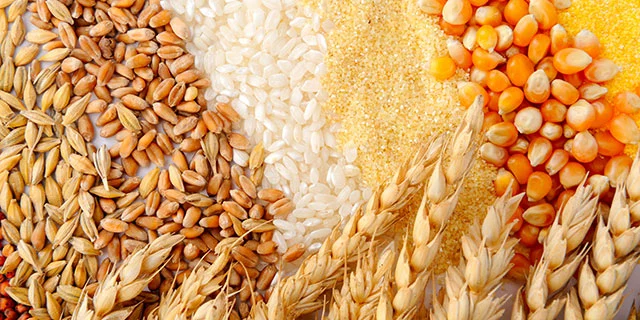There is no doubt that substandard agricultural produce has deprived Nigeria of huge exportation opportunities, even as the sector remain the largest contributor to the country’s Gross Domestic Product (GDP).
Most of the Nigerian agricultural products were blacklisted in the international markets largely due to proliferation of substandard products and residue of agro-chemicals in crops such dried beans, hibiscus, palm oil and smoked fish.
It is also in the known that attempts to prevent pest infestations in storage by people who are not trained in such practices caused such chemical residue in food.
Apart from the denials of exportation opportunities coming mostly from European countries, also lies citizen’s health risk arising from food poisoning.
Although the World Health Organisation (WHO) had formulated some key requirements to ensure food safety globally but achieving these safety measures has been a struggle in Nigeria as available data shows that over 200,000 Nigerians die annually from food borne illnesses.
Even though Nigeria exported agro-food items increased from N78.03 billion in 2020 to N165.27 billion in the second quarter of 2021 according to the National Bureau of Statistics (NBS) with most of the exportation going to Asia, European countries remain largely a potential market for exporting agricultural products.
The leading agricultural products attracting exportation in 2021 are Cocoa with export value of N63.18 billion, Cashew nuts to the tune of N42.94 billion, Sesamum seeds amounted to N21.64 billion and Coconut which account to N13.02 billion.
Others are Ginger which worth N3.75 billion in exportation, Frozen sea foods at N3.46 billion, Brasil nuts in shell worth N3.28 billion, Natural cocoa butter valued at N2.44 billion, Sesame oil and its fraction for N1.29 billion and Palm nuts and kernels accounted for N1.08 billion.
Experts believe that If the quality of Nigeria’s agro-export produce is improved, the country will add about $30 billion from non-oil export by 2025 into its GDP, resulting in job creation for the teaming youth and strengthening of exportation capacity.
This amount is significant to the Nigeria’s economy especially at a time when the country struggle to revive the economy through diversification into agricultural sector. It is imperative to strengthen the Nigeria’s “Zero Reject Initiative” which was recently set up by the federal government to break the jinx of reoccurring rejection of Nigeria’s agro-produce and boost exportation.
The “Zero Reject Initiative” was conceived to boost Agro & non-oil exports through improved quality control and standardisation with the objective of ensuring zero reject of Nigeria’s agro and non-oil exports in the global market and there is a standing Inter Ministerial Committee establish by the federal government to this effect.
A member of the “Zero Reject” Committee and president of Agricultural Produce Sellers Association of Nigeria (APSAN), Comrade Aloys Akortsaha said Nigerians must support its recently set up task force as part of efforts to fight and eradicate unsafe and contaminated food, fake and substandard agricultural produce in the country.
He said that the association with support from the Standard Organisation of Nigeria (SON) and the Federal Competition and Consumer Protection Council (FCCPC), has trained the ‘ACT-Force with the view to reduce substandard agro-produce by at least 80 percent across Nigeria.
Since the international market remain highly competitive and only products that conform to the high quality standards and packaging can meet the required global market demand, improving the quality of Nigerian food products is considered the best way to address the rejection challenge.
Comrade Akortsaha said that the association was concerned with high level of unsafe agro- produce in the market, adding that the task force will be equipped with requisite knowledge to inspect, investigate and combat substandard and counterfeiting agro-produce, food poisoning and bring healthy and safe food for Nigerians and boost exportation.
He said, “Our target is to at least go to the nooks and crannies of this country with at least five personnels for each local government and by so doing we will be able to complement the efforts of the federal government, so the training is to educate them about the task ahead and before they start the work, they must understand what is expected of them, so i am very optimistic that with government support, we will be able to reduce the cases of sub-standard agro-produce by 80 percent.
In addition to this, it is in the view that NAFDAC and other relevant agencies must begin to create awareness on food safety in all the 774 local governments in the country with due attention to hazard analysis, critical control, good manufacturing practices and others during the awareness campaigns.
Fighting substandard agro-produce means growth in agric export, increase in foreign earnings, job creation through exportation, with the overall benefit of boosting the country’s foreign reserve as well as relieve the pressure on the exchange rate.





